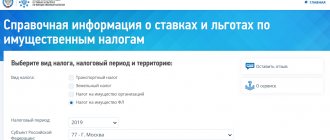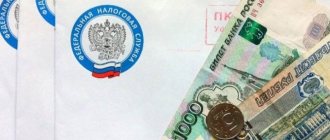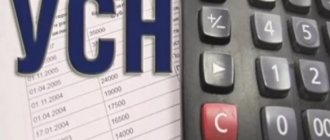Is there a tax on foreign exchange transactions in the Russian Federation?
Direct transactions with currency, cash or non-cash, are not subject to any special tax in the Russian Federation. Moreover, judging by the trends in the further formation of currency legislation in the country, we cannot expect the appearance of such a tax in the near future.
For more information about what to expect, read: “Changes in currency legislation since 2017.”
The tax on foreign exchange transactions refers to the income tax of individuals payable to the budget at the end of the past year. For example, if an individual purchased dollars at a rate of 50 rubles per dollar, and then exchanged them for rubles at a rate of 70 rubles per dollar, then this person received income in ruble equivalent. According to the current legislation, an individual must declare and pay personal income tax from such income to the budget for the year in which he made a profitable operation.
Let's look at the reasons for this.
Reason for adopting new rules
The official regulations of the Central Bank of Russia (499-P) set out the main positions for identifying clients. A forced measure to strengthen control, tracking, combating financial terrorism and money laundering. The bank’s task is to thoroughly check the persons performing money exchange transactions and its other clients. This provision applies to the operation of currency exchange offices. The principle of purchasing or selling a foreign currency through Internet banking or non-cash payment remains the same.
What is the essence of taxation of income from currency exchange
The grounds for paying tax in case of receiving income from currency exchange are as follows:
- clause 1 art. 228 of the Tax Code of the Russian Federation obliges the payer (individual) to pay tax (personal income tax) on income related to the sale of property;
- clause 2 art. 38 of the Tax Code of the Russian Federation establishes: what is property should be determined according to the norms of the Civil Code of the Russian Federation;
- Art. 141 of the Civil Code of the Russian Federation, in turn, determines: in what should be classified as property expressed in currency values, one must be guided by the norms of legislation on currency regulation;
- and finally, paragraph 1 of Art. 1 of the Law “On Currency Regulation” dated December 10, 2003 No. 173-FZ classifies currency as property.
Thus, having gone through the entire logical chain, we establish: transactions of individuals selling foreign currency with profit should be subject to personal income tax. Consequently, when selling currency, an individual acquires the obligation to report such sale to the Federal Tax Service and pay tax if he receives income from the transaction.
These conclusions were repeatedly confirmed by the Ministry of Finance in its letters. As an example, let us indicate the letter dated February 20, 2015 No. 03-04-06/8370.
Read more about this: “Will a tax be introduced on foreign exchange transactions?”
What do the new rules mean for citizens?
New rules aimed at ongoing currency purchase and sale transactions have raised a lot of questions among ordinary citizens. The adoption of a provision on mandatory personal identification of the client (exchange of ≥ 15,000 rubles is made) raised a wave of mistrust and became overgrown with a web of unverified information.
- Use of personal data specified when making a currency transaction for subsequent taxation of the completed transaction. Today there is no such clause in the legislation of the Russian Federation. Honest citizens should not worry about their accumulated funds. There are no additional financial penalties.
- Many took the innovations as a signal for a sharp change in the exchange rate of foreign currencies and began to sow panic on their own, creating an artificial financial deficit. The exchange rate is set and fixed by the Central Bank of the Russian Federation.
- Information fraud. The data established by the bank during the client identification process is the property of the organization and is closed from access to third parties. The collection of information is carried out in order to ensure the security of the bank and identify possible unlawful actions of the client.
Like everything new, the adopted rules frightened ordinary citizens more, forcing them to resort to alternative methods of exchange. This reaction fueled a wave of fraud.
Practical application of “currency” personal income tax in 2016–2017
Despite its solid theoretical justification, this rule does not work in practice. At least for now.
There are several reasons for this:
- There is no specific procedure for accounting for foreign exchange income when calculating the taxable base for personal income tax that is understandable to “ordinary residents.” At the same time, most citizens are not experts in the Tax Code of the Russian Federation in order to correctly calculate the base and tax according to general standards (even if they know about the need to calculate tax when selling currency).
- The Federal Tax Service does not have tools to monitor the activities of citizens in the purchase and sale of currency. In the vast majority of cases, if a citizen himself does not come to the Federal Tax Service with a declaration that includes income from currency exchanges, then the tax authorities have no way to find out about it.
- From the point of view of the application of the Tax Code of the Russian Federation and the above conclusions, questions also remain. For example, in Art. 217 of the Tax Code of the Russian Federation there is a provision that transactions with property that has been owned by an individual for more than 3 years are not taxed. It is quite difficult to confirm or deny the fact of ownership of foreign currency funds for a certain period of time; a person could collect the exchanged amount for years (for example, to buy a home). How to calculate tax correctly in this case? Or how to force a citizen to inform the tax office about such situations, which will probably offer to pay personal income tax on the entire amount?
So, in most cases, Russian individuals do not seek to declare and pay “currency” personal income tax, and the Federal Tax Service does not have the ability to identify such defaulters. Payment of tax is possible in situations where a currency exchange transaction is documented and subject to verification (for example, a non-cash exchange of a large amount in an individual’s bank accounts) or when personal income tax on currency-related transactions is withheld by a tax agent (for example, when an individual issues a loan to an enterprise in foreign currency ).
For information on withholding personal income tax in such cases, see the article “Loan in foreign currency: is the positive difference subject to personal income tax?”
Dollar load
Therefore, all the same rules apply to currency as when selling any other “other” property, which are prescribed in the Tax Code.
Let's assume that an investor exchanged rubles for US dollars and then invested them in something (for example, purchased some ETFs). The question of whether it is necessary to calculate personal income tax on income received as a result of currency exchange will not arise until the investor exchanges US dollars back into rubles or some other currency.
If such a transaction occurs, it is necessary to look at how many years the investor has owned the currency that is currently being exchanged. If the ownership period turns out to be more than three years, then there is no need to file a tax return, and there is also no need to calculate and pay personal income tax on transactions performed.
If the period of holding the currency is less than three years, then, according to the Tax Code, at a minimum you will have to file a tax return. Moreover, the investor will need to do this independently, because the bank or broker in this case will not be tax agents.
However, even if a declaration has to be filed, personal income tax may not arise as a result of the currency exchange. The investor can take advantage of tax deductions: the income received as a result of currency exchange can be reduced either by the amount of previously incurred expenses (i.e. by the amount that had to be paid when purchasing the currency), or by a fixed amount of 250,000 rubles.
Although in some such cases there are certain nuances, in general, at the moment, Russian legislation reflects precisely this procedure.
Another question is to what extent all this is actually applied and controlled in practice. Today, it is quite difficult for tax authorities to track and compare such currency exchange transactions. Therefore, in most cases, declaration of such income and payment of tax on it occurs either if the investor himself voluntarily submits all documents to the tax office, or if the tax office, for example, as a result of an inspection of a bank or broker in some way separately will reveal such transactions and the fact that no tax was paid on them.
However, if you adhere to certain rules, an investor can independently avoid filing a declaration and paying personal income tax in the case of currency purchase/sale transactions, and also reduce the risk of receiving claims from the tax office:
1) You must be prepared to document the period of ownership of the currency or the amount of expenses incurred when purchasing it. It is best to store all related documents somewhere separately.
For example, if an investor purchased currency once 3 years ago, a second time last month, and today sells part of the currency, if there are supporting documents, you can always refer to the fact that it is the currency that was sold that was purchased 3 years ago, so submit In this case, there will be no need to declare or pay personal income tax.
2) If possible, avoid currency exchange transactions in situations where the period of holding the currency can be clearly established, and it will be less than three years.
Let’s say an investor buys currency on the Moscow Exchange through a brokerage account, does not withdraw the received currency anywhere and keeps it in the account, and then sells it a month later. In this case, the holding period for the currency will definitely be less than three years, and this fact can be quite easily established from brokerage reports. Therefore, if an investor does not file a tax return, the risk of receiving claims from the tax office in such a situation will be higher.
3) Remember about the minimum tenure (3 years), after which you will not need to file a declaration and will not need to pay personal income tax, as well as tax deductions (for the amount of expenses incurred and for the amount of 250,000 rubles).
Thus, as a result of currency purchase/sale transactions, it may be necessary to file a tax return and pay personal income tax. At the same time, it is always important to know the ways in which you can avoid all this. Source /https://sergeynaumov.com/ When copying, the link https://elitetrader.ru/index.php?newsid=389956 is required Terms of use of materials
Results
As such, there is no tax on currency exchange transactions in the Russian Federation yet. The legal norms imply the obligation of resident individuals to declare and pay personal income tax on transactions with currency, if income was received as a result of such transactions. But in practice, this norm has not yet been practically implemented, since there is no working procedure for calculating, paying and confirming personal income tax amounts from transactions with currency, and there is also no control mechanism for the implementation of this norm by the Federal Tax Service.
NOTE!
For the purposes of this article, “resident of the Russian Federation” should be understood as “tax resident of the Russian Federation,” since we are talking about taxation according to the norms of the Tax Code of the Russian Federation. You can find more complete information on the topic in ConsultantPlus. Free trial access to the system for 2 days.
Will Russians pay 13% tax when purchasing foreign currency?
Important
Against this background, speculation began to arise that the government was going to introduce a tax on currency exchange. But the head of the Ministry of Finance, Anton Siluanov, denied these rumors. “No one was going to introduce any taxes on foreign exchange transactions of citizens,” Siluanov said. — The point is that companies that operate in the foreign exchange market, on Forex, and have income from foreign exchange transactions, they simply take this income into account as part of the total income from the company’s operations. No one has ever intended to introduce any additional taxes on citizens and never will.”
Let us recall that the practice of a currency exchange tax existed in Russia from 1997 to 2003. At that time there was a commission of 1% on the amount purchased. But this measure was abandoned because it did not bring the expected budget revenues.









